With Mother’s Day just around the corner (9 May), TheHomeGround Asia explores the trials and joys of motherhood through the experiences of three mothers in the pawrenting, foster parenting and bereavement communities. From the challenges they face to the moments they treasure, they delve into what motherhood means to them, and how it has changed their lives.
The path to motherhood was not an easy one for 42-year-old Felicia Tan. After getting married in 2004, her husband and her tried to have children. Five years passed and still unable to conceive naturally, they found themselves exploring the use of fertility treatments. With IVF (in-vitro fertilisation), Ms Tan became pregnant but experienced complications in the 23rd week of her pregnancy, forcing her to deliver her son, Dominic, prematurely.
“My water bag burst abruptly… And my baby, [his] leg actually protruded out of the water bag. So it made healing impossible. Sadly two days later, he was rushed to be delivered,” she says.
Dominic died minutes after being born.
Several months later, her subsequent attempt at IVF, during which she conceived twins, ended tragically too, as she had to have an emergency delivery again.
“On the 21st week, the stitch tore, I bled. So I was rushed to hospital… Two days later they were forced to [be] born [early] again,” says Ms Tan, explaining that she knew then there was a high chance Elvis and Louis would not survive. She braced herself for the worst and it happened.
After the two devastating miscarriages, loneliness overwhelmed her as she tried to process her grief and a nagging guilt: “You keep on trying to recall the day’s events leading to it. Or if there’s any missed out signals, or something that I could have done differently.”
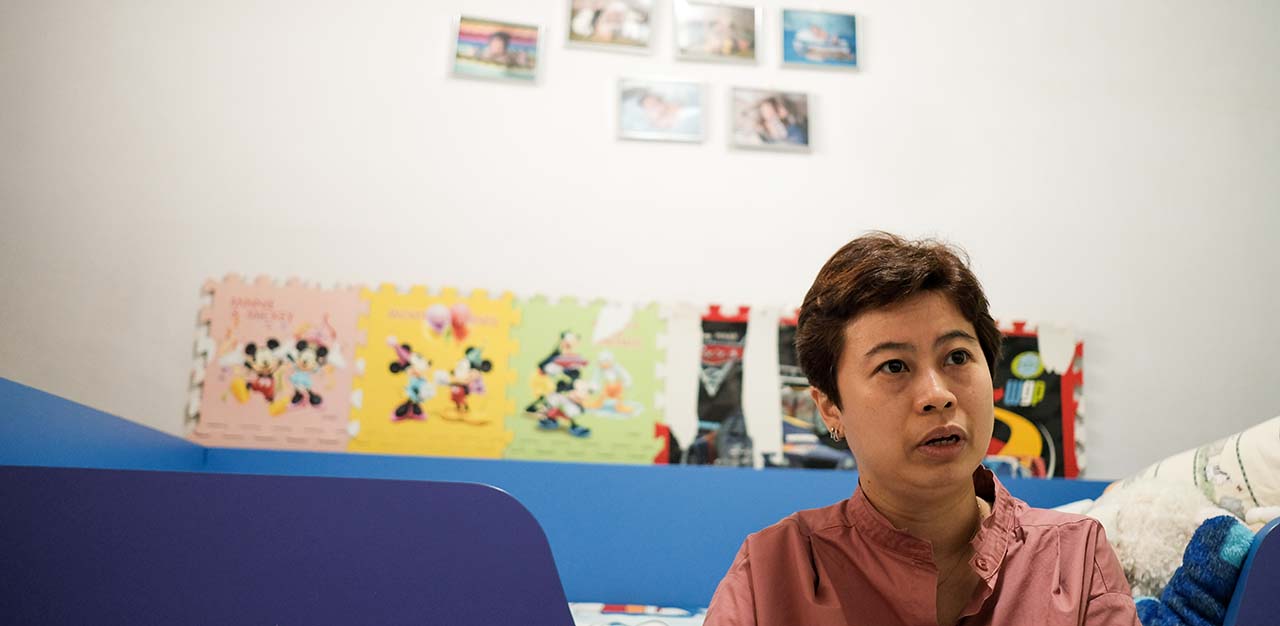
Friends and family members offered little solace because they could not relate to the deep sorrow she was experiencing. For instance, they would try to console her but only made matters worse, saying things like, ‘You can try again’, and ‘Maybe it’s not meant to be.’
“It’s very painful for us to hear… We know they meant well, it’s just that it didn’t come out well,” she says.
Thankfully, the support Ms Tan received at home from her husband and mother was unfailing, though it too had its limits: “She [mum] gave me my space, my time. But it’s very hurtful for me even to share [with] her, because as a mum, she felt the pain… So it’s like, share also don’t seem to help that much. And it may hurt her even more.”
Since the topic of miscarriage was (and still is) taboo, she turned to online forums in the hopes of connecting with people who shared similar experiences, and finding some comfort.
“Sad to say, we all hide behind forums, with a nickname, trying to talk to each other. Thankfully, at least now we can get a handphone number, WhatsApp privately,” she says. “Or else you will be just reading the [forum] thread and hoping that someone might reply.”
Ms Tan eventually conceived naturally and Titus was born, six years ago. He is her “rainbow baby”, a term she uses that refers to babies born after a miscarriage, stillborn, or neonatal death.
But despite the passing years, the feelings of guilt and sadness have not fully faded.
Holding back tears, Ms Tan says that she considers herself a mother to the children she has lost: “There’s always the part about you can’t do your role… Every time I buy a toy for him [Titus], we will be thinking what kind of toy [should] we be buying for them [Dominic, Elvis and Louis]… You’re always worried you’re shortchanging them [even though they’re gone].”
In the process of coping with her ordeal, Ms Tan has written and published three books that chronicle her tumultuous journey through motherhood. She has also helped to set up and run Angel Hearts, a non-profit organisation started in 2016 to bring comfort to bereaved families, like hers, by turning wedding gowns into apparel for babies who have passed away at birth. Being part of the Angel Hearts community has provided Ms Tan a way to help other mothers going through the same anguish she did from losing their children.
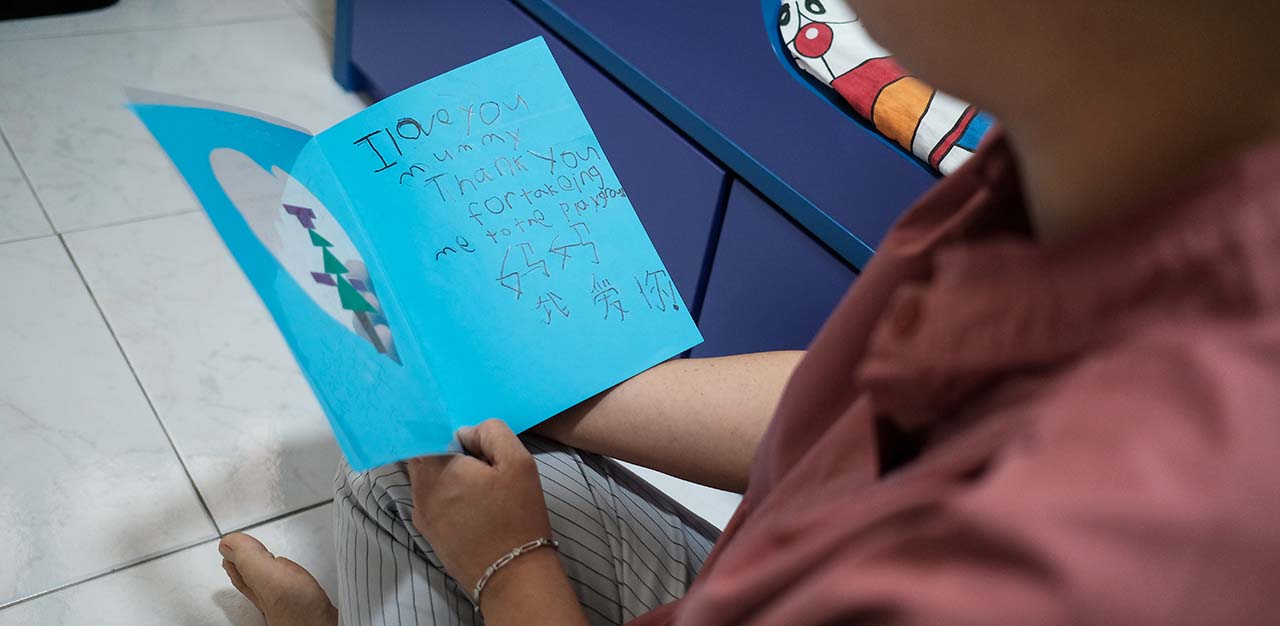
Pawrenting, another kind of mothering
Pia Chandra-Masters’ journey as a pawrent (a term describing parents to pets) started when she decided to foster dogs with her husband, in 2018. Initially, they had not wished to adopt a pet due to uncertainties in life, like travel plans and the long-term commitment it entails.
“We didn’t know [if] we’re going to be in Singapore; moving dogs [is] a financial cost that you have to think about, how the dog [is] going to survive the travel,” she explains. “And then are we going to be able to commit to a dog for 15, 20 years?”
Eventually, they decided to adopt a dog after family members agreed to pet-sit when they travelled, and resolving any doubts they had about the financial cost of bringing a dog overseas.
Mrs Chandra-Masters says that her year-long journey as a pawrent to Missy, while continuing to foster, has come with its fair share of challenges, such as members of the public being afraid of or rude towards her and her dogs.
Take the recent incident with a neighbour in the lift; she was with her husband, Nathan, Missy and Lucius, a foster dog.
“This uncle came in… He started swearing under his breath… I was very protective over the two of them and I said ‘Don’t swear at my dogs’,” she recounts.
“Sometimes we get people clutching their bags and running away from our dogs. Missy is not doing anything, you know, not barking… There was another auntie that wanted to hit her with the umbrella.”
She notes that such incidents are not uncommon, and says that it is tough to educate the public on how to respond appropriately to dogs. While she acknowledges that some people may harbour a fear of dogs due to traumatic experiences, she claims that this group of people in society is “smaller than the others that react in a very unnecessary way.”
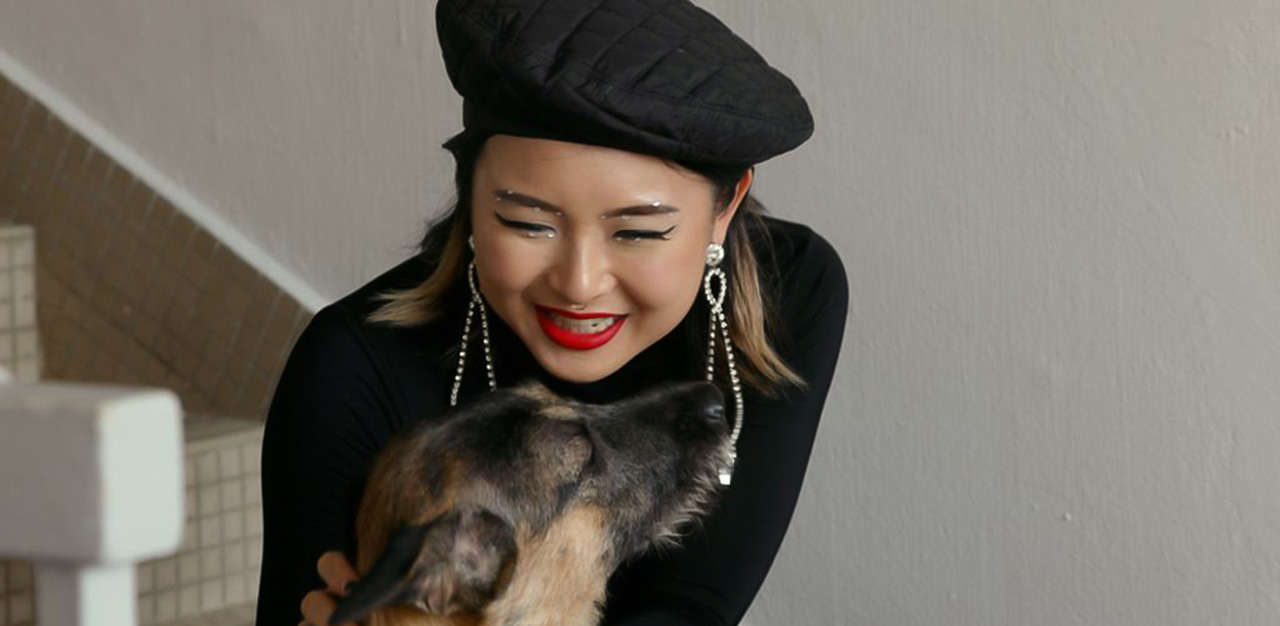
Fulfilling emotional and educational needs as a foster mother
Nurasikin Ashari, 42, was inspired to explore fostering after meeting her sister Siti’s first foster child at a family gathering, in 2017. She admired how her sister and brother-in-law were able to make a difference to the lives of their foster kids.
Mdm Shikin was further encouraged when she met other foster families through Siti. Her husband, Fairus, also supported the idea of becoming foster parents.
“We really wanted to give back to the community and this was a fabulous way to do it,” she adds. “We believe in this: If you can, give your home; your time; your love, or whatever you can. Do not stop giving.”
Her husband and her took in their first foster child Mia (not her real name) in January, last year. Mdm Shikin recalls worrying whether Mia, who turns six this year, would cry or run away when they were introduced. Hence, to smoothen out their first meeting, she made a gift basket for Mia, containing items such as craft materials, stickers and snacks.
“Mia arrived at our doorstep; I am tall, so I bent down to greet her,” she says. “I introduced myself and she had a shy smile. We bond instantly.”
Since then, their priority has been to help Mia meet developmental and educational milestones. But watching her grow has had its ups and downs. After being told that she was falling behind her peers in diction and alphabet recognition, Mdm Shikin and Fairus developed a plan to strengthen Mia’s language skills.
They implemented a rewards system that meant she could only play with a toy after completing a book or a page of homework. They also limited her screen time to reduce distractions, and read to her daily. The efforts paid off; it took just five months for Mia to catch up with her classmates and is even helping them now.
Being new parents to Mia has also meant showing her how to manage emotions, instilling manners and respect, as well as impressing the importance of being kind.
“The only thing they sad [is] for themselves. They never think sad for others,” explains Mdm Shikin. “So we have to show them empathy. If you hurt your friend, you must say ‘sorry’. We share these values [with] her.”
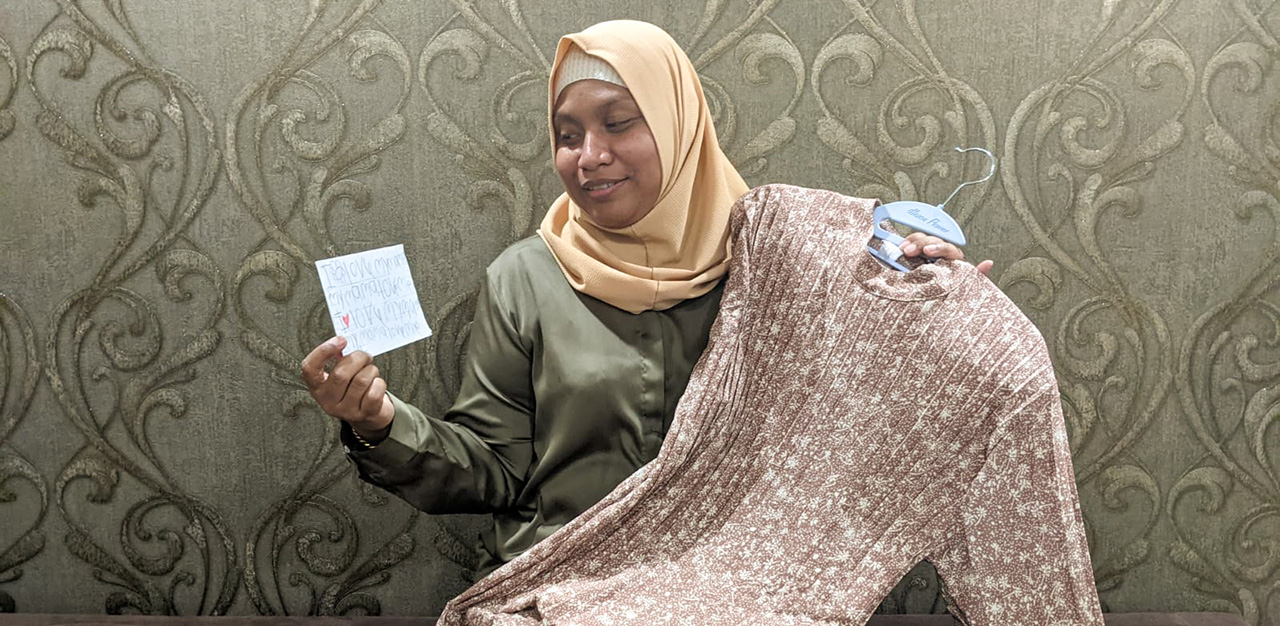
The meaning of motherhood
Being Mia’s mother has been an “amazing journey” so far, says Mdm Shikin.
For Mother’s Day last year, her daughter drew her a handmade card and even gave her a gift, which she did not expect, because “each child and experience gained from the journey is already a godsent.”
And while she has celebrated Mother’s Day with her nieces and nephews in the past, the annual event with Mia has been particularly meaningful, as it reminds her of her journey as a foster parent: “When I become a mother, I realise that this is the joy. This is a privilege.”
Dog-mum Mrs Chandra-Masters regards Mother’s Day as a “celebration of women that take care of a living being”, and a day of appreciation and acknowledgment.
“I think it’s a celebration of women everywhere. Women who are not just human mums,” she says. “It’s not just to dogs, there are cat moms and… even plant mums.”
Being a mother “encompasses a lot of things”, says Ms Tan, without a one-size-fits-all manual on how to bring up a child.
“Every child is different. They tell you all sorts of advice. But might or might not work on the child,” she explains. “You’re the nurse, you’re the teacher, you’re the everything, and you suddenly have to embrace all these roles all at one time. And not to mention, he’s our precious one. So we have a lot of anxiety.”
She stresses, however, that every mother has different strengths, and one should not feel inept if they do not fit into the conventional ideal of a ‘mother’. For instance, not excelling at skills typically associated with the matriarch, such as cooking and cleaning.
“You definitely have your strength as a mum; it’s just which area. Instead of focusing on where you’re not good at, why not focus on what you’re good at?” she asks.
“I think what matters is really spending time with your child, nurturing him to be the person that you want him to grow up to be… because these are the things that can’t really be done by other people.“
How motherhood has changed them
Being a mother to Titus has made Ms Tan more compassionate, and has deepened her appreciation for the “little things in life”.
“You look at things differently. You stop to smell the roses; not just rushing through work, projects, deadlines,” she says. “You learn to take a break, look at things through his perspective, and really ask what your priorities [are].”
While, patience is one virtue that Mdm Shikin has learnt as a foster mother.
“It’s changed me in a way to become much more patient, [especially] when she eats. Because she’s a small kid… this is how slow a child eats,” she says.
She has also honed her negotiating skills, by acting as both parent and friend.
“It used to be just me and my husband, whatever I say, [he would] do,” she says. “With this child, you have to negotiate, to be a friend. Sometimes you have to be the mother. You have to balance them.”
Similarly, Mrs Chandra-Masters has become more composed.
“I think that’s the biggest thing with parenting. You just have to learn how to control your own reactions to things,” she says.
Being a pawrent has also challenged the way she thinks about human parenthood. Before fostering or adopting dogs, she had to consider factors such as commitment level, and understanding that adoptees might come from a place of trauma, which she believes can also be applied to children.
“My husband and I have been trying for a family for about two, three years now… Having been through the fostering journey, being a parent and adopting a dog, has changed our mindset a little bit about fostering, or potentially adopting a kid,” she explains.
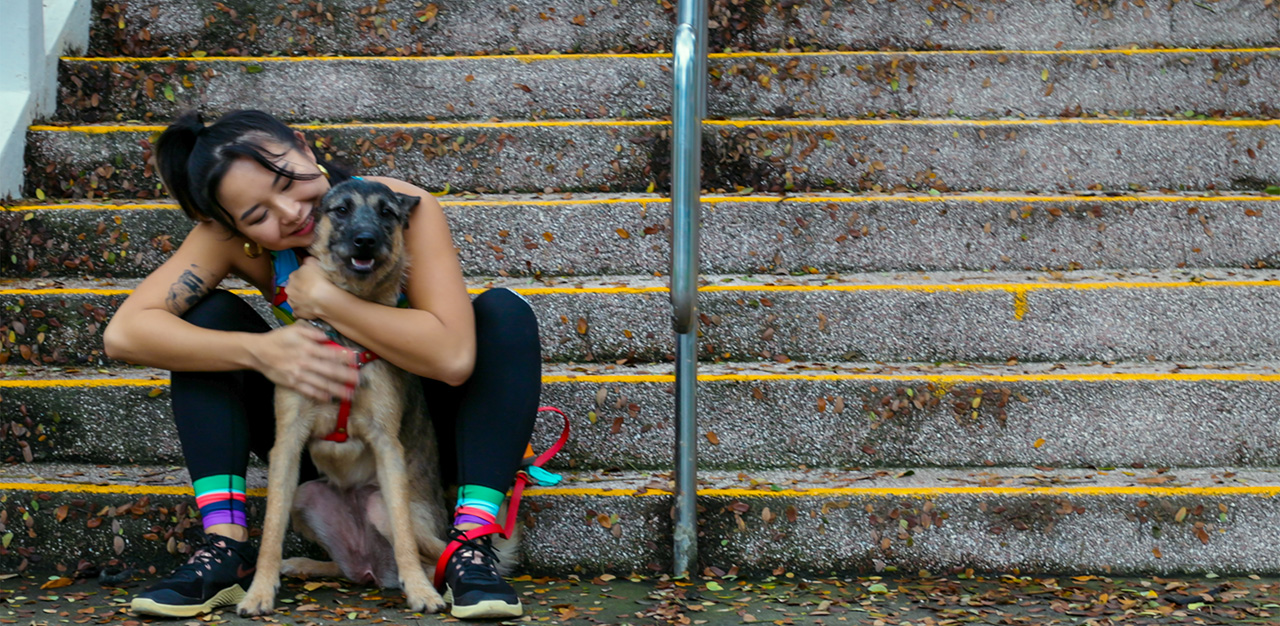
Keeping calm and mothering on
Despite the myriad of hurdles that a mother to a child or pet has to deal with, these women would never give up parenting for anything. Here is why.
“Some of these dogs come to us, and they’re just in such an awful state. I don’t see the light at the end of the tunnel for them,” shares Mrs Chandra-Masters. But what motivates her to carry on is being able to rehome her foster dogs, and to see how happy they are in their new homes.
It is all about being able to give, says Mdm Shikin: “When you have so much to give, it is so enriching to just keep giving. Just give fearlessly for each child’s future, because you will never know how you will impact their lives.”
And for Ms Tan, Titus’ unconditional love and affection reminds her that she is on the right path: “Out of the blue, he will stick stars on me to say, ‘I give you five stars upon five’… He will say, ‘I love you’ on and off. Mother’s Day, he made me a card.
“That’s where you come to feel or think, ‘Not bad, I’m not doing a bad job.’ It’s the affirmation coming from him,” she adds.
Join the conversations on TheHomeGround Asia’s Facebook and Instagram, and get the latest updates via Telegram.














